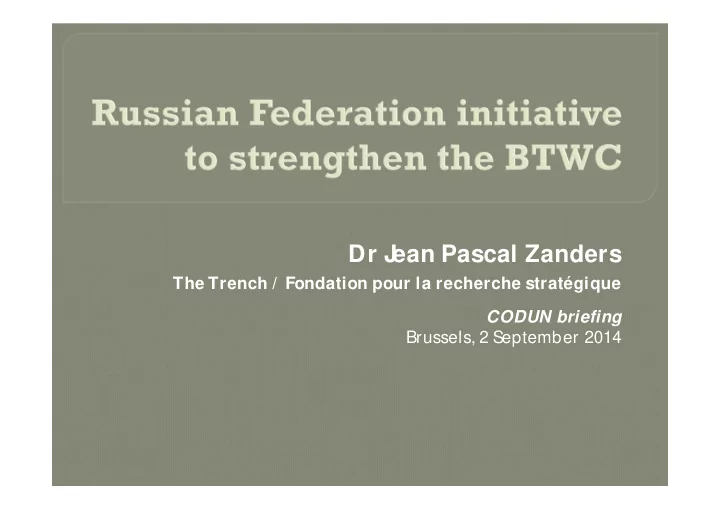

Dr J ean Pascal Zanders The Trench / Fondation pour la recherche stratégique CODUN briefing Brussels, 2 September 2014
Centrality of international organisation � Division of labour between IO and individual states parties • Verification of activities • Verification of treaty obligations (e.g., implementation legislation) • Investigation of alleged use of prohibited weapons in armed conflict • States can enhance the verification system � On bilateral or regional basis • � Supplementary verification activities � Assistance Open sources and national intelligence • � Options for bilateral consultations or action through IO Civil society: supplementary roles � Analysis and reporting on national compliance • Open source analysis and reporting • Raising concerns about the integrity of the norm (e.g., incapacitants & CWC) •
All transparency-related activities originate with the states parties � No formal verification system • Confidence-building measures (CBMs) • Can be undertaken bilaterally (with reporting to state party meetings) • No sanction if a state party remains passive • Investigation of alleged use • � UN Secretary-General retains full autonomy to initiate an investigation � States Parties have possibility to consult with each other in case of compliance concerns (Art. V), but retain right to take complaint to UN Security Council (Art. VI, 1) No international organisation � Implementation Support Unit (ISU) assists states parties with meetings, coordinates CBM collection and • facilitates interactions between states parties in areas such as cooperation and assistance ISU is part of UNODA, not an independent structure • Triple role for civil society possible � Similar functions as with formal verification system • Active involvement in universalisation and implementation assistance, including building local civil • society activity Innovative thinking on future of the BTWC, including options for a formal verification system •
Recommend
More recommend